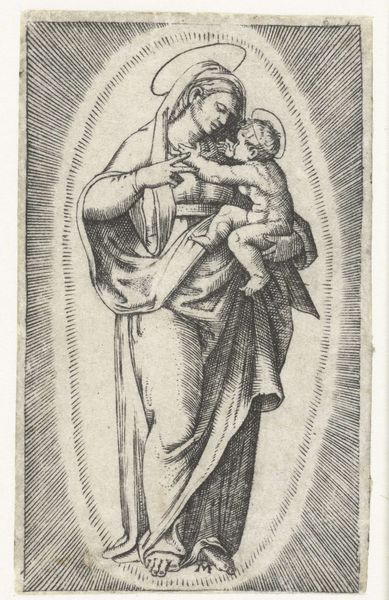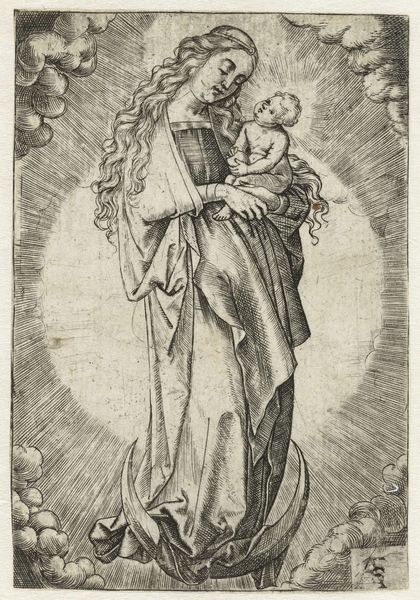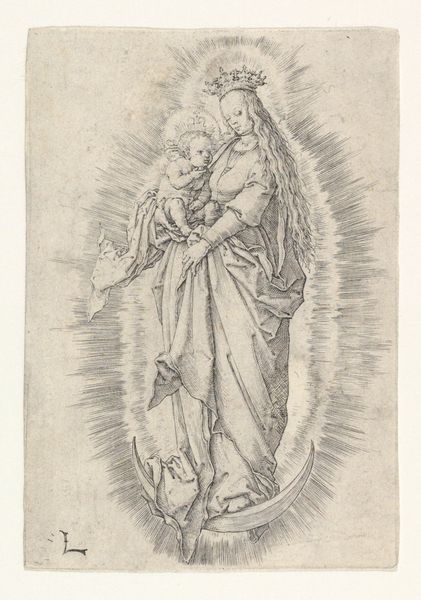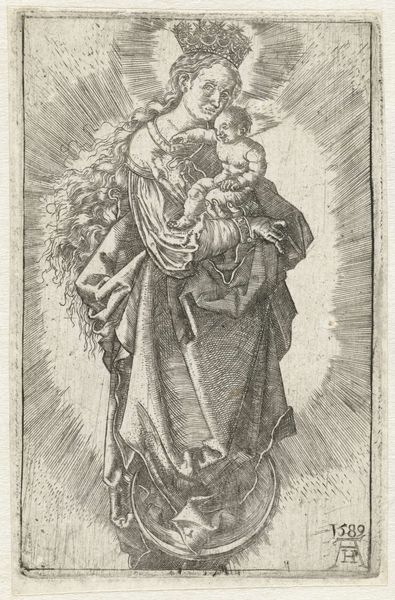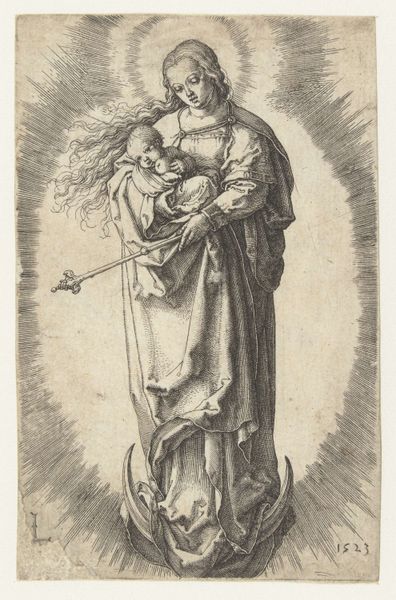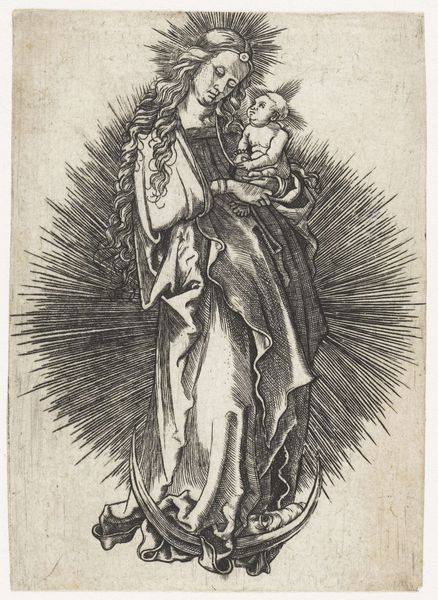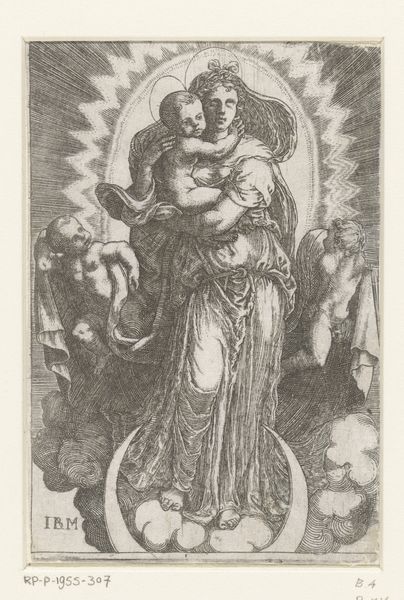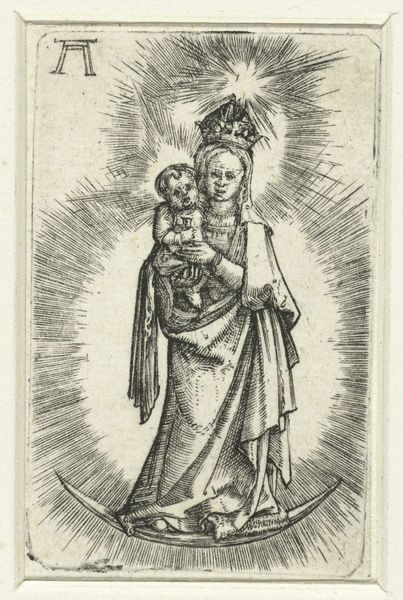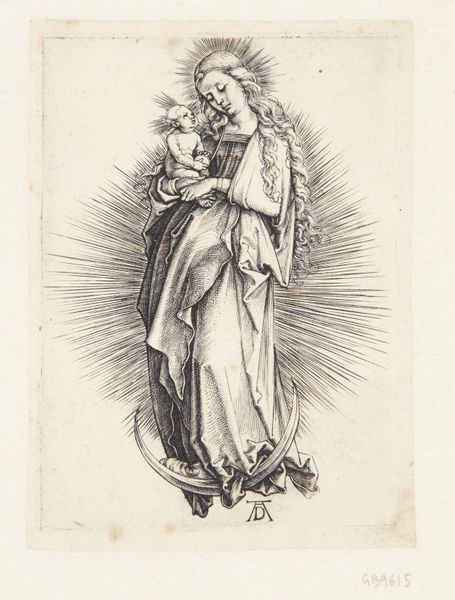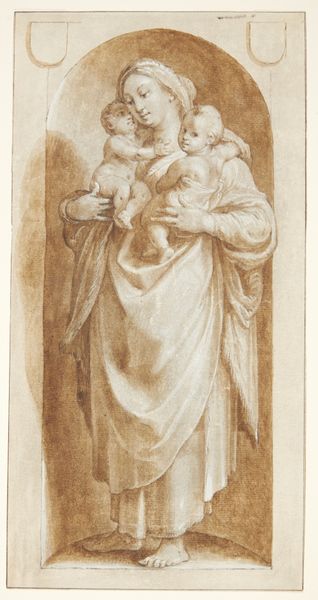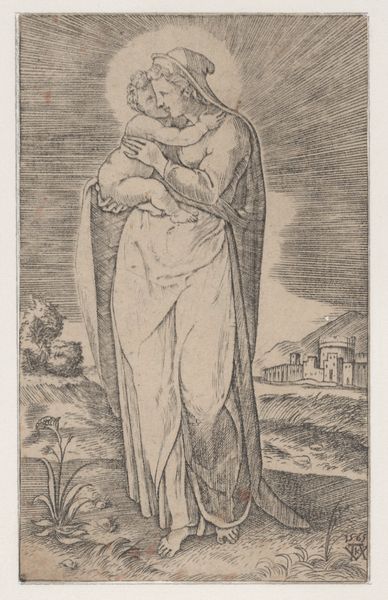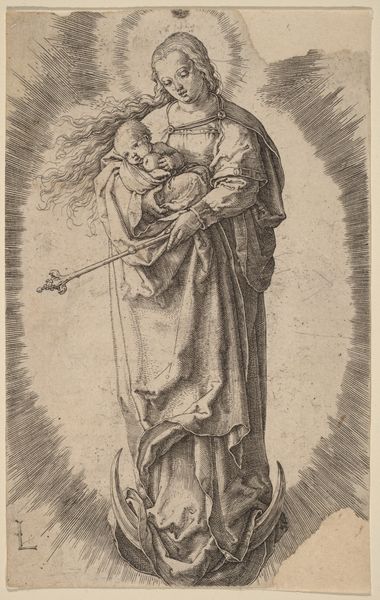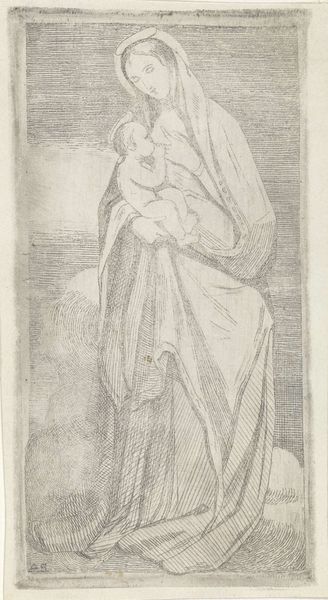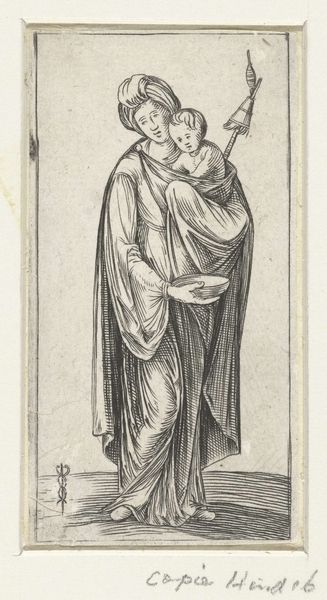
print, intaglio, engraving
#
portrait
# print
#
intaglio
#
figuration
#
portrait drawing
#
italian-renaissance
#
engraving
Dimensions: height 85 mm, width 52 mm
Copyright: Rijks Museum: Open Domain
Editor: Here we have Marcantonio Raimondi's "Maria met kind in stralenkrans", created sometime between 1500 and 1527. It’s an intaglio print, housed here at the Rijksmuseum. I’m immediately struck by the radiating lines that frame Mary and the child – they almost seem to vibrate with energy. What do you see in this piece? Curator: It does buzz, doesn't it? For me, it's a window into the fascinating world of the Renaissance and the explosion of printmaking. Before photography, prints like this circulated widely, spreading artistic ideas. This image is special. I wonder... have you noticed the careful balance between the soft curves of Mary's figure and the almost harsh, linear quality of the radiating lines? Editor: I do see the contrast. Was that contrast a popular technique at the time? Curator: It's more than just a technique; it's a deliberate visual language. The contrast between her calm, maternal presence and the active lines may point to divine intervention. Those 'stralenkrans,' that burst of radiance, frames this tender moment between a mother and child. Do you feel how contained and protected they seem within it? Editor: Yes, it creates a real sense of intimacy. I suppose, without it, the image may have been a simple portrait of mother and child. The halo really changes the perception. Curator: Precisely! And isn't it interesting how a relatively small print, created with just lines and ink, can still convey so much emotion and meaning? It speaks volumes about the skill of the artist. The print may be small in size, but expansive in imagination. Editor: It definitely does. Looking at it with that background gives me a whole new appreciation. Curator: Me too! I love how each look gives way to fresh details.
Comments
No comments
Be the first to comment and join the conversation on the ultimate creative platform.
